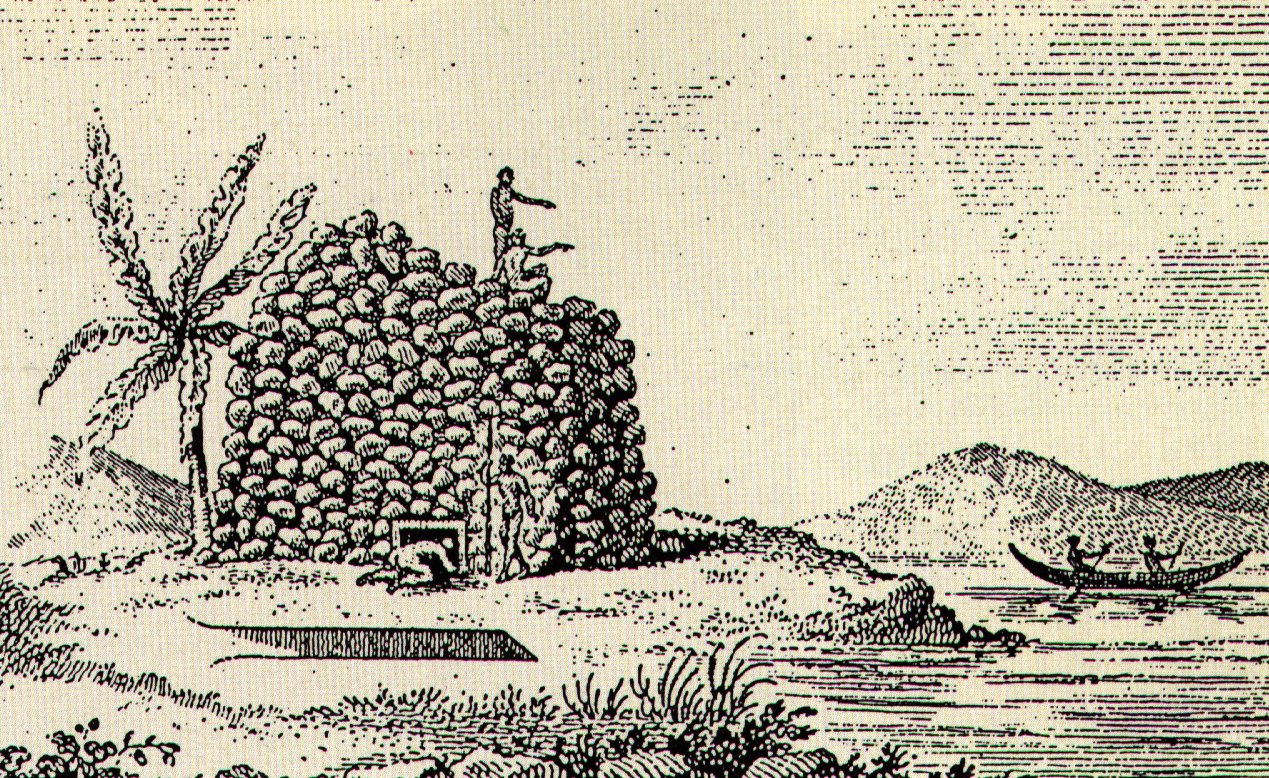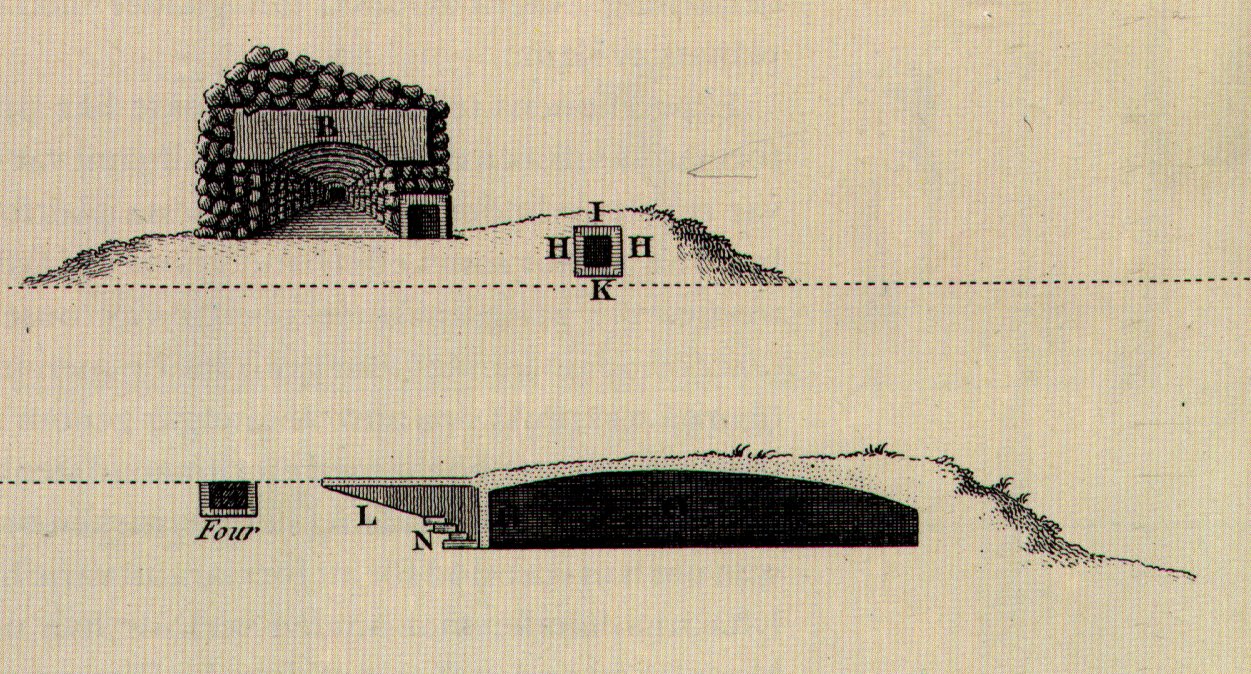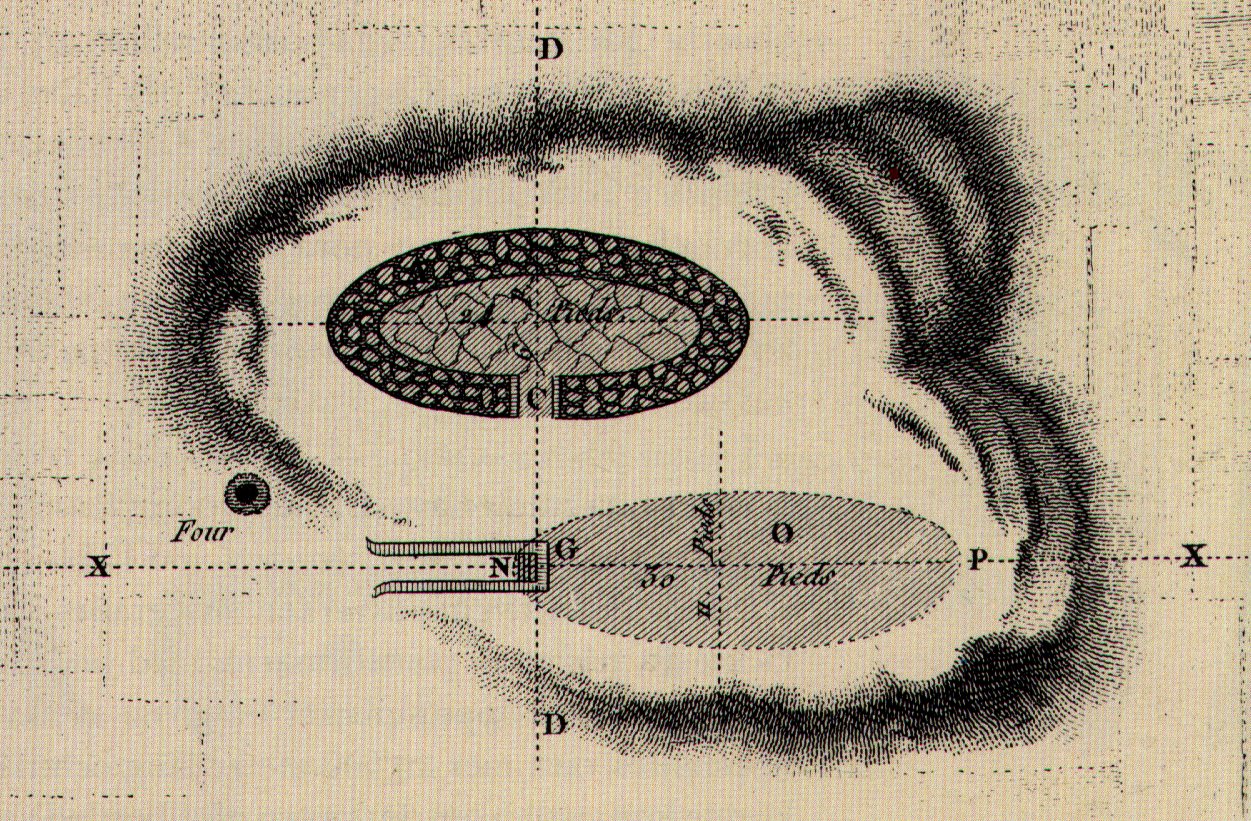| TUPA Van Tilburg has this information concerning a photo of a tupa (The photo is not included here, drawings of good artists convey much more relevant information.): "Stone structure (tupa) of unclarified function near La Pérouse, Rapa Nui, by A. Métraux." Furthermore she says (regarding the buildings on Rapa Nui in general): "… the interesting tower structure called tupa found in the coastal zone, had unknown functions, but … perhaps associated with the minor East Polynesian god called Tupa." From the La Pérouse expedition these drawings (ref. Heyerdahl) are very clear and informative:
Schumacher: "Compare also the type of structure, mainly in the Lake Titicaca basin area, called chullpa and Easter Island's tupa, both apparently built as 'adoratorios', in which mummies, skeletons, and skulls were displayed and worshipped … where tupa would be the expected Polynesian revaluation of chullpa." |
| "KUPA, v. Haw., to dig out, hollow out,
as a canoe or a trench; kupa-paku, a place deep down in the
ground. Tah., tupa, to dig out, hollow out, scoop out. Fiji., cuva, to stoop, bow down. Mal., kubur, grave, tomb. Sunda., tumbuk, a hook, a staple. Sanskr., kûpa, a well, a pit.; kûpa-kara, a well-digger; kub-ja, humpbacked, crooked; kumbha, a pot, jar. Benfey (Sanskr. Dict.) refers the two latter to a lost verb kubh, with an original signification of 'to be crooked'. He offers no etymon, however, for kûpa, well, pit. The Polynesians reconcile the two. The Sanskrit kûpa finds its kindred in the Hawaiian and Tahitian kupa, and the Sanskrit kumbha, ku-ja, and kubh, with a primary sense of 'crooked', refer themselves to the Fijian cuva, 'to stoop, low down', a sense now lost within the Polynesian dialects proper. Pers., kuftan, kaftan, to dig, cleave; kuft, kâf, fissure. Armen., kup, pit, cistern. Greek, κυπτω, to bend forward, to stoop down; κυφος, humpbacked; κυμβη, a cup, a boat, a wallet; σκυφος, a cup; κυψελη, any hollow vessel. Lat., cubo, lie, recline: concumbo, incumbo; cupa, a vat, cask. Goth., kumbjan, lie down, recline; hups, the hips, loins. A.-Sax., cop, a hollow vessel, cup. Anc. Slav., kâpona, a goblet. Russ., kopati, to dig; a cistern. Welsh, cwb or cwpan, a hollow place, kennel or cote. Gael., tubag, tub." (Fornander) |


